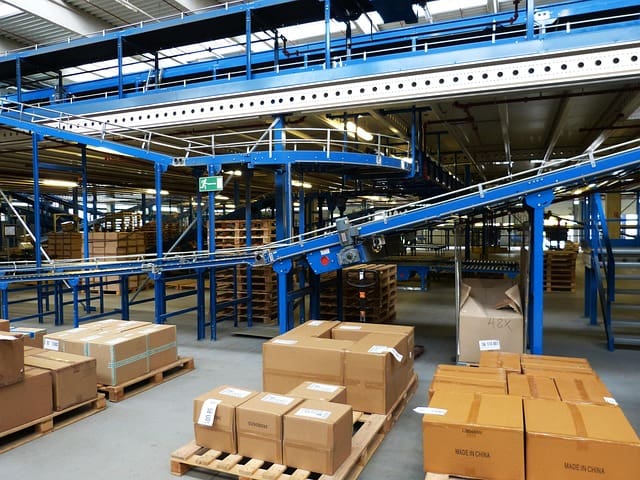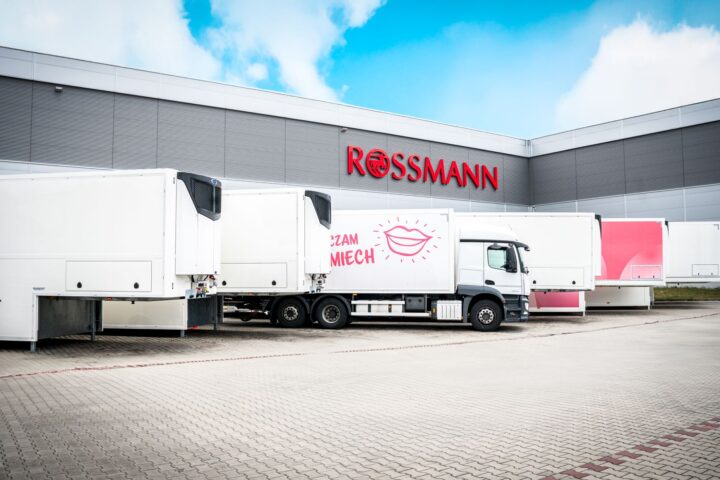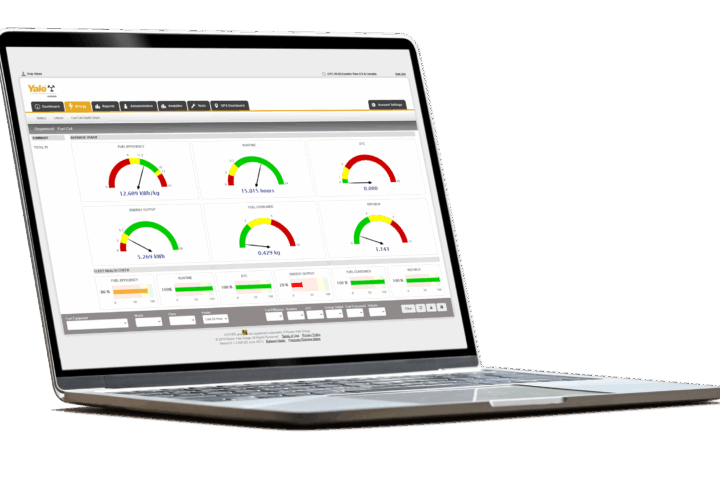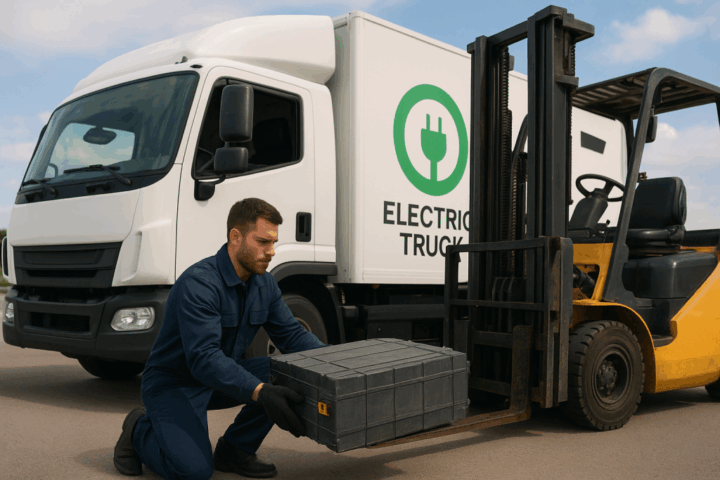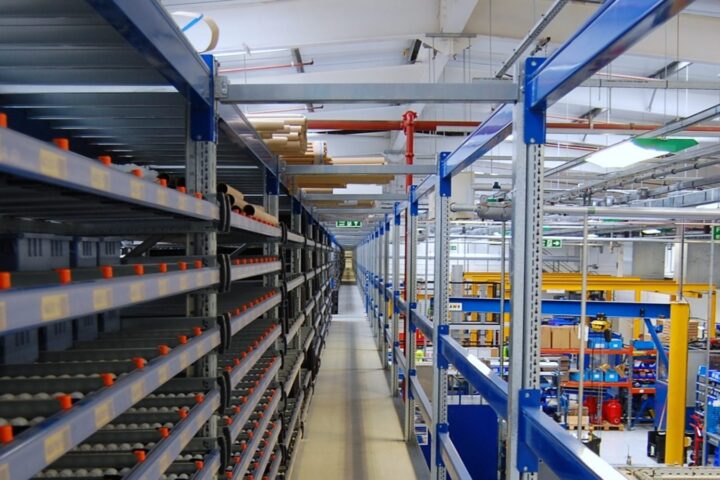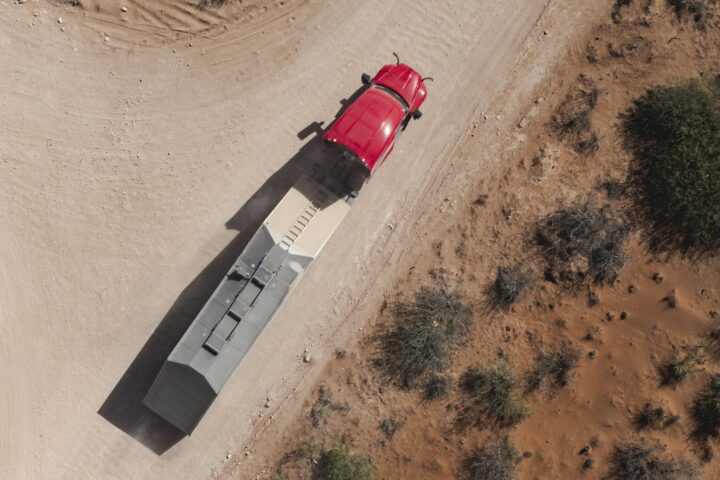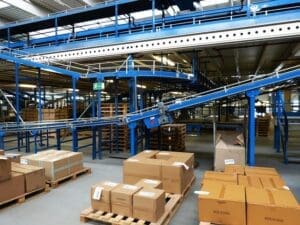 This week’s Supply Chain and Logistics News included headlines about the sharp decline in solar installations in the European Union due to a drop in political support. BYD announces a major manufacturing site in Pakistan beginning in 2026. The U.S. admisntrayion announced a trade deal with Japan and an AI Action Plan. Lastly, the U.S. Yamaha team signed a 3PL agreement with supply chain company DHL.
This week’s Supply Chain and Logistics News included headlines about the sharp decline in solar installations in the European Union due to a drop in political support. BYD announces a major manufacturing site in Pakistan beginning in 2026. The U.S. admisntrayion announced a trade deal with Japan and an AI Action Plan. Lastly, the U.S. Yamaha team signed a 3PL agreement with supply chain company DHL.
Here are the major headlines for this week:
EU Solar Energy Rollout Declines For The First Time in Decade
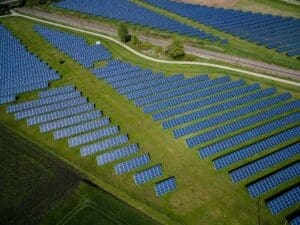 The European Union is facing its first decline in solar energy expansion in over a decade, with new installations expected to drop by 1.4% in 2025. This marks a significant shift after years of steady growth, driven largely by a reduction in government subsidies for rooftop solar systems in key markets such as Germany, France, and the Netherlands. Although solar energy accounted for 22% of the EU’s electricity generation last month, the share of residential rooftop installations is projected to fall sharply—from around 30% between 2020 and 2023 to just 15% in 2025. This policy shift, influenced by budget constraints and changing political priorities, is creating uncertainty across the solar supply chain. As a result, the EU is now on track to miss its 2030 solar capacity target by 27 gigawatts. This decline in installation reflects the role of policies that serve as a carrot for renewable energy manufacturers. This decline in production will have negative impacts on the relatively new supply chain, resulting in the value chain constricting.
The European Union is facing its first decline in solar energy expansion in over a decade, with new installations expected to drop by 1.4% in 2025. This marks a significant shift after years of steady growth, driven largely by a reduction in government subsidies for rooftop solar systems in key markets such as Germany, France, and the Netherlands. Although solar energy accounted for 22% of the EU’s electricity generation last month, the share of residential rooftop installations is projected to fall sharply—from around 30% between 2020 and 2023 to just 15% in 2025. This policy shift, influenced by budget constraints and changing political priorities, is creating uncertainty across the solar supply chain. As a result, the EU is now on track to miss its 2030 solar capacity target by 27 gigawatts. This decline in installation reflects the role of policies that serve as a carrot for renewable energy manufacturers. This decline in production will have negative impacts on the relatively new supply chain, resulting in the value chain constricting.
China’s BYD to Assemble EVs in Pakistan from 2026
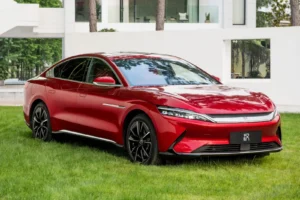 Chinese EV giant BYD is set to begin assembling electric vehicles in Pakistan by mid-2026, aiming to capture the growing demand for EVs and plug-in hybrids in the region. Partnering with Mega Motor Company, BYD is building a 25,000-unit annual capacity plant near Karachi, initially assembling imported parts with some local production. The company targets a 30–35% market share and plans to expand into regional exports. BYD’s Shark 6 plug-in hybrid pickup will launch this week, joining a segment where hybrids are favored due to limited charging infrastructure. Government incentives, including reduced power tariffs for EV chargers, are helping accelerate adoption and reshape Pakistan’s automotive supply chain landscape.
Chinese EV giant BYD is set to begin assembling electric vehicles in Pakistan by mid-2026, aiming to capture the growing demand for EVs and plug-in hybrids in the region. Partnering with Mega Motor Company, BYD is building a 25,000-unit annual capacity plant near Karachi, initially assembling imported parts with some local production. The company targets a 30–35% market share and plans to expand into regional exports. BYD’s Shark 6 plug-in hybrid pickup will launch this week, joining a segment where hybrids are favored due to limited charging infrastructure. Government incentives, including reduced power tariffs for EV chargers, are helping accelerate adoption and reshape Pakistan’s automotive supply chain landscape.
US and Japan Strike a Trade Deal
 In a landmark trade agreement, the U.S. and Japan have struck a deal that significantly reduces tariffs on Japanese auto imports from 27.5% to 15%, while averting additional duties on other goods. In return, Japan will invest \$550 billion in U.S.-bound projects, including purchasing 100 Boeing planes, increasing defense spending to \$17 billion annually, and boosting agricultural imports—such as a 75% rise in rice purchases. The deal aims to strengthen supply chains in key sectors like semiconductors and pharmaceuticals. While Japanese automakers and markets surged in response, U.S. auto manufacturers criticized the agreement for favoring Japanese imports over North American-built vehicles. Tariffs on steel, aluminum, medicines, and chips remain under separate negotiation.
In a landmark trade agreement, the U.S. and Japan have struck a deal that significantly reduces tariffs on Japanese auto imports from 27.5% to 15%, while averting additional duties on other goods. In return, Japan will invest \$550 billion in U.S.-bound projects, including purchasing 100 Boeing planes, increasing defense spending to \$17 billion annually, and boosting agricultural imports—such as a 75% rise in rice purchases. The deal aims to strengthen supply chains in key sectors like semiconductors and pharmaceuticals. While Japanese automakers and markets surged in response, U.S. auto manufacturers criticized the agreement for favoring Japanese imports over North American-built vehicles. Tariffs on steel, aluminum, medicines, and chips remain under separate negotiation.
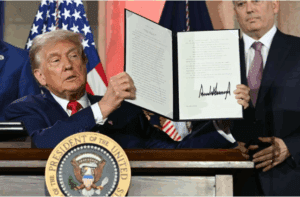 On July 23, 2025, the White House launched the “AI Action Plan” through three executive orders aimed at accelerating domestic AI development and deployment, with significant implications for U.S. supply chains. The plan promotes large-scale data center expansion—such as the 4.5 GW Stargate project—impacting utility planning, construction procurement, and energy infrastructure. It also introduces regulatory rollbacks across sectors like logistics and manufacturing, enabling broader use of AI tools while increasing state-level regulatory variation. Export controls on AI technologies may be loosened, expanding global market access but raising compliance risks. While workforce retraining is mentioned, no concrete programs have been announced. Supply chain stakeholders must now navigate evolving infrastructure demands, operational governance, trade exposure, and labor strategy in response to this sweeping policy shift.
On July 23, 2025, the White House launched the “AI Action Plan” through three executive orders aimed at accelerating domestic AI development and deployment, with significant implications for U.S. supply chains. The plan promotes large-scale data center expansion—such as the 4.5 GW Stargate project—impacting utility planning, construction procurement, and energy infrastructure. It also introduces regulatory rollbacks across sectors like logistics and manufacturing, enabling broader use of AI tools while increasing state-level regulatory variation. Export controls on AI technologies may be loosened, expanding global market access but raising compliance risks. While workforce retraining is mentioned, no concrete programs have been announced. Supply chain stakeholders must now navigate evolving infrastructure demands, operational governance, trade exposure, and labor strategy in response to this sweeping policy shift.
Yamaha Motor Manufacturing Enlists 3PL for Operations
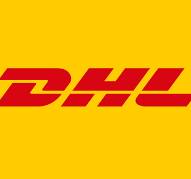 Yamanha Motors Manufacturing Corporation of America announced that it will transition its internal distribution operations to DHL Supply Chain, tentatively on October 5th. The YMMC president said that by enhancing their internal logistics capabilities, they are able to focus even more on their core strengths. YMMC will transition about 175 team members to DHL Supply Chain as part of the deal and continue supporting distribution operations. The switch to DHL Supply Chain reflects YMMC’s long-term strategy to build a more responsive and scalable supply chain, the manufacturer said. DHL’s on-site support and logistics expertise position YMMC to strengthen reliability and increase flexibility, per the release.
Yamanha Motors Manufacturing Corporation of America announced that it will transition its internal distribution operations to DHL Supply Chain, tentatively on October 5th. The YMMC president said that by enhancing their internal logistics capabilities, they are able to focus even more on their core strengths. YMMC will transition about 175 team members to DHL Supply Chain as part of the deal and continue supporting distribution operations. The switch to DHL Supply Chain reflects YMMC’s long-term strategy to build a more responsive and scalable supply chain, the manufacturer said. DHL’s on-site support and logistics expertise position YMMC to strengthen reliability and increase flexibility, per the release.
Song of the week:

